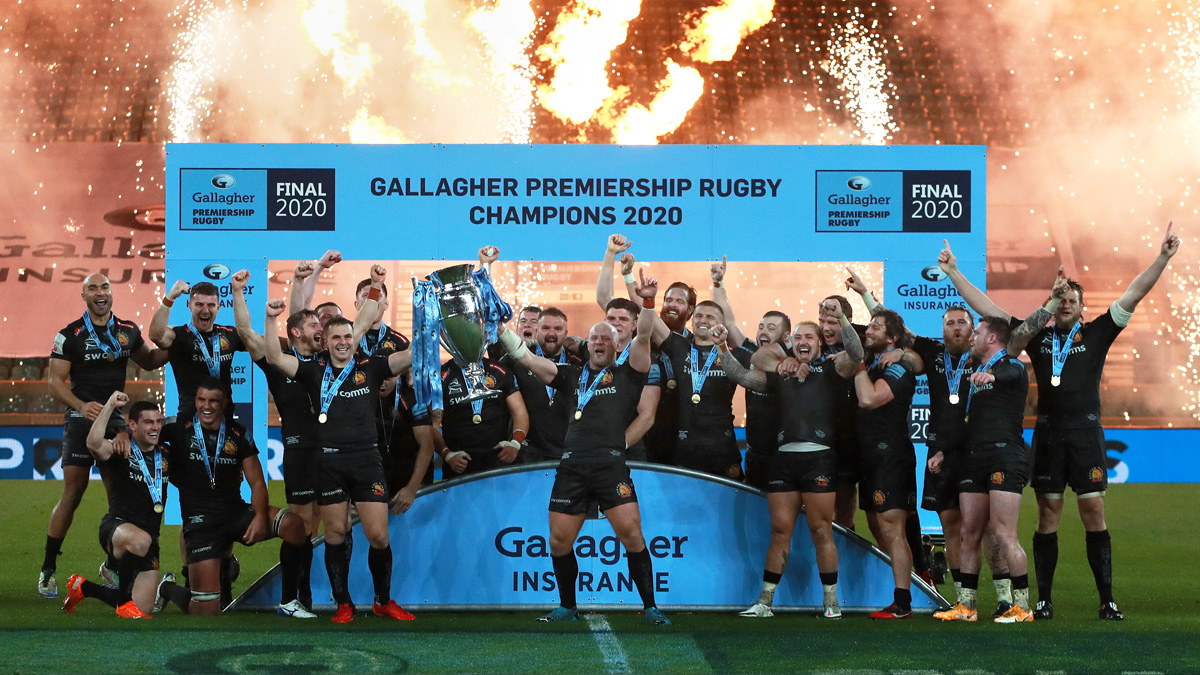
What does it really take to turn around an organisation? In our latest Business Leader podcast series, The Turnaround, we explore how these stories happen, not only in business, but in sport, culture and other fields.
We start with the Exeter Chiefs – a rugby union club that went from playing in front of a handful of spectators at a small ground to winning both the English and European competitions in the same season – all in less than two decades.
In 1996, the club was playing in Courage League Division 4, the fourth level of English rugby union. Their games were played at the County Ground, a multipurpose ground that also hosted greyhound racing and speedway.
Three years earlier, Exeter had wooed a local businessman, Tony Rowe, founder of South West Telecoms, into a £4,000 sponsorship deal. Little did they know what that relationship would set in motion.
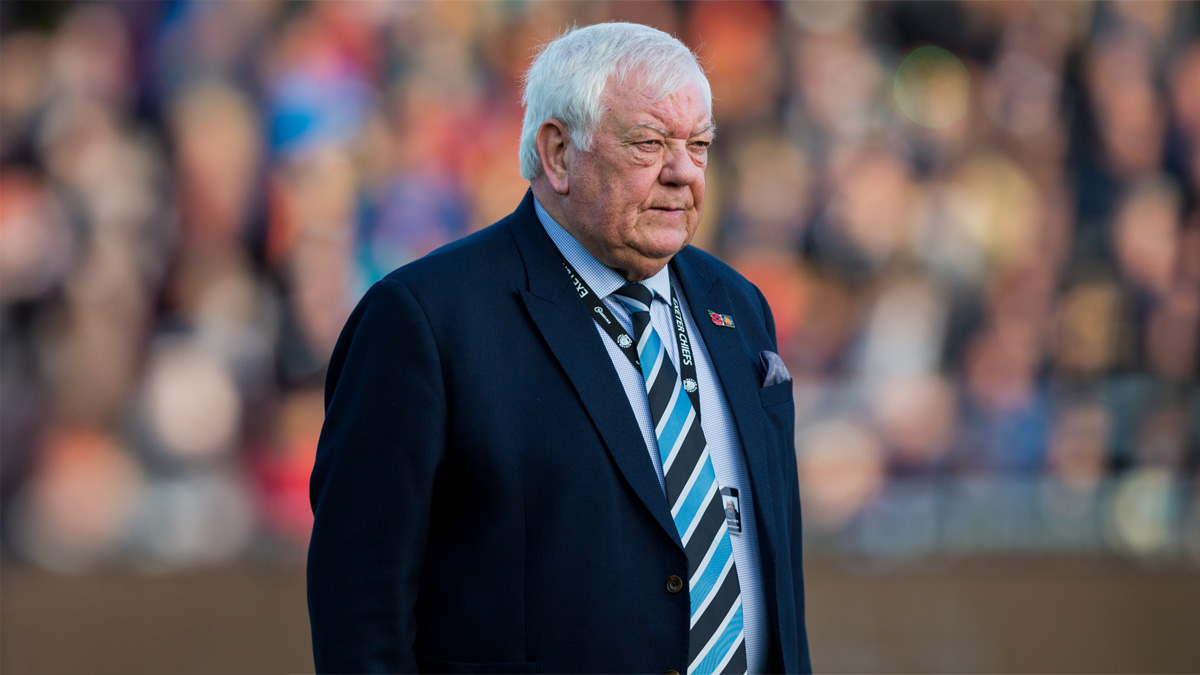
Under Rowe’s leadership as club chairman, Chiefs sold the County Ground and bought a 25-acre site on the eastern edge of the city to develop their new home ground, Sandy Park.
While the hospitality business picked up, results on the field were falling short. Chiefs had made it to English rugby’s second division but couldn’t reach the Premiership, so Rowe decided to turn to a man with a history at the club.
Rob Baxter was the son of the previous chairman, John Baxter, who had encouraged Rowe to get involved with the club a decade before. Rob had been a ball boy, he’d painted the lines on the County Ground field and operated its wooden scoreboard, but he’d also played for the club for 14 years and captained them for 10.
His keen eye for detail had become his strength. He has a coding system, which he still uses today, where he goes through matches with a fine-tooth comb, focusing on a single player and pulling out strengths and weaknesses, along with factors such as work rate and body language.
“A key fundamental for us was that whatever happened, we spent a good section of each week working on ourselves and how we improved regardless of what results were happening in and around us, so that we always felt we were on a progression,” he says.
This technique is designed to “flatten the curve”. Baxter explains how this influences individuals, especially young players: “If you’re in the team one week and then someone comes back from injury and you’re out of the team again, you don’t become a bad player overnight. You have to make sure you refocus and say, ‘I've got another training day now, I just make the most of it and move on to tomorrow’.”
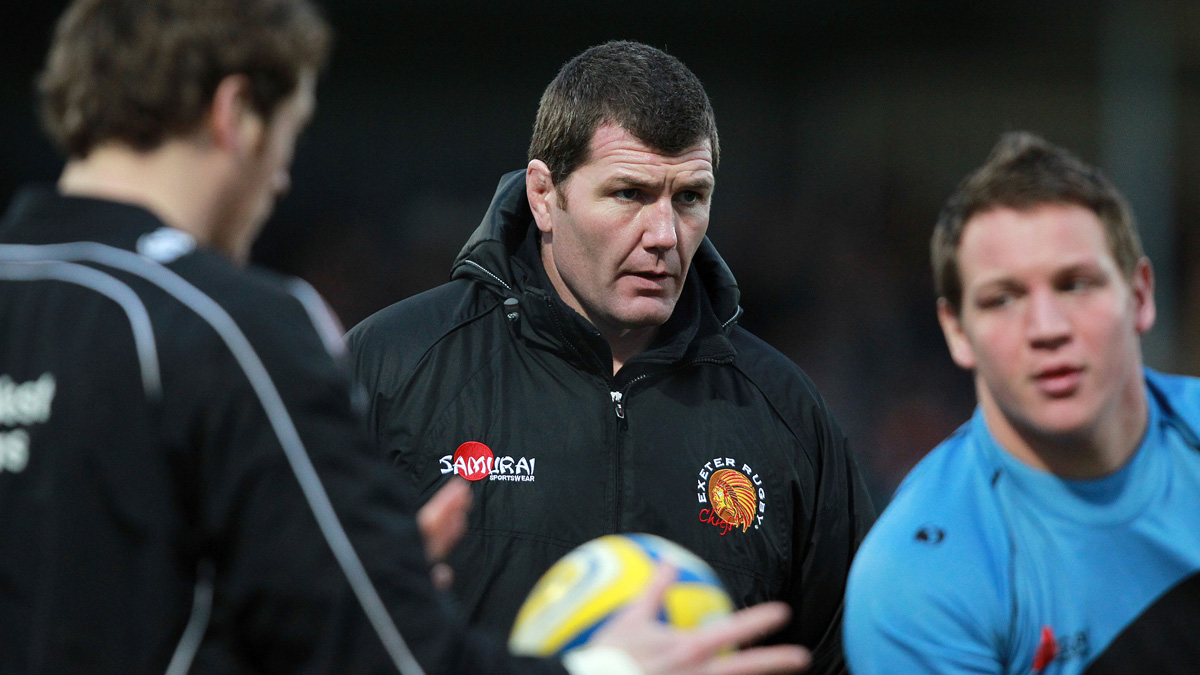
This technique means players need to keep their feet on the ground in the good times too. While ups and downs are bound to come, in sport and business, they allow individuals and the team as a collective to stay focused on what they can control, regardless of external factors.
Organisational psychologist Don Armand, who played for Chiefs for nine seasons, says this approach can be easily replicated by businesses: “In business, we will often look at everything else [competitors’ strategies etc] but forget what we are looking at to improve week by week.
“How much ‘review-preview’, that we do in rugby, are you doing in business? How often do you have a meeting where you ask, ‘What did we do last week? Did we get that task achieved? How much better could we do that? Could we improve this system?’ Call it a review-preview, so you understand that it's not about performing all the time.”
The club’s new director of rugby and his backroom team’s approach led the team to second in the Championship in the 2009-10 season. They went on to win the double-legged play-off final against Bristol, giving them a spot in the top flight of English rugby for the first time in their 139-year history.
A decade later, the club would lift the Premiership and European Champions Cup trophies in back-to-back weeks, becoming only the fourth English club to achieve “the double”. However, the journey was anything but smooth. Exeter lost three of their four Premiership finals before their pinnacle moment. Learnings abound from this South West-based tale, and we break it down throughout the series, but here is a snapshot.
How did Exeter Chiefs achieve the double?
Culture
When Rob Baxter took over, his history with the club gave him the knowledge that the foundations of a successful team were there already: it had a team culture that they like to call the “Chiefs way”.
“I knew what led to our best performances,” he says. “It's when we had a group of guys together and we felt we were sacrificing together. I'm a huge believer in making sure the lads can come in and feel part of a group that can have fun together, can enjoy their success together, but also understand how important they are to each other.
“If someone said, ‘What's your coaching mantra?’ it would be that once you get people to genuinely understand how important you are to each other and how you dictate each other's successes, you've got the golden ticket. When you look at rugby, it’s 15 players on a relatively small field. If they're all really aligned and they're all sacrificing for each other, and they've all spent a lot of time preparing to be important to each other, it's pretty hard not to see how very powerful that can become.”
When it comes to recruitment, the club has placed a keen focus on finding not necessarily the best people, but the right people. Haydn Thomas, a former Chiefs player who is now a coach at the club, says: “A lot of our success over the years has been around recruitment, and Rob's ability to recruit characters and allow them to be themselves, not to conform to ‘this is how you have to be’. It doesn't matter what sort of person you are, we just want you to be yourself.”
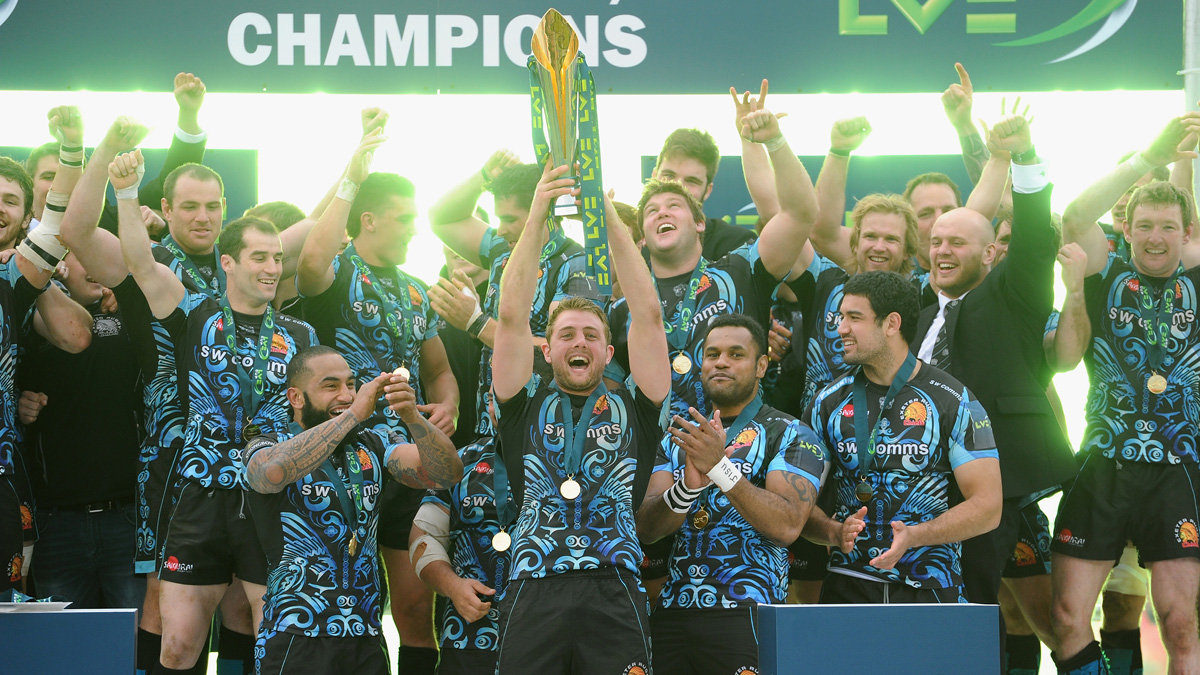
Momentum of the group
Momentum is a term that’s thrown around in a sporting context but is just as important in any organisation. The words and actions of some can have an overwhelming effect on the collective. When that is heading in a good direction, innovation, collaboration and productivity thrive. However, when that’s heading in the wrong direction, morale, burnout and disengagement can begin to fester.
“You get some strong characters within the group who can start the process of heading one way or the other, either positively or negatively,” says Baxter. “You’ve a middle layer of people who will follow the direction of the stronger characters. Once that momentum, or that drive within the group, starts to disperse and get spread, you lose that positive momentum and it gets hard to coach [or lead].”
The key thing as a leader is to be tuned into the momentum of the group but make sure that you are honest with yourself. “When I talk to people about leadership or culture,” he continues, “I always say that one of the most important things is that you do need to open your eyes and believe what you see. You need to open your emotions a bit and you need to believe what you feel.
“There are loads of people who say, ‘I know what I'm doing, trust me.’ I win. If you had a Hoover salesman phone you up and say, ‘Trust me, I've got the best Hoover in the world,’ you’d think all right, this is dodgy and want nothing to do with them. With the players, I either watch what they've done in the past or what they're currently doing and empower those who deserve it. I believe what I see with my own eyes.”
We can get carried away with feelings or biases without consciously realising it’s even happening. This approach by Baxter is a keen reminder of Occam's razor: the simplest option is likely to be the correct one. The onus is on you to determine the momentum of the group and know when interventions need to be made, even if they may seem difficult.
Communicating the vision
An example of this comes up early in our story, when Exeter began to bring through a steady stream of academy players to boost the team. Five featured in the England U-20 Junior World Championship, including Henry Slade, Jack Nowell and Luke Cowan-Dickie, all of whom soon became first-choice players. While it was exciting to have a solid core group of young players, at the start of the 2013-14 season Baxter started to realise that his approach to coaching needed to evolve.
He recalls a conversation with fellow coach Ali Hepher around this time: “I remember saying to Ali, ‘If I don't say something about us winning a trophy, these guys are going to leave.’ I wanted them to know that we're an ambitious club.” Baxter got each player into a room and told them that he wanted them to drive higher standards in the playing group.
“He set that vision by saying, ‘We're going to win a trophy’ and it's important to do that,” says organisational psychologist Graham Norris. “Most importantly – and this is something a lot of people miss out on – the vision needs to be as vivid and as vibrant as what we can see right in front of us. So many things in the future seem abstract, almost pie in the sky. However, to really make that vision hit home, it needs to be real, vibrant and vivid.”
Armand says that if a team can’t tell you what the vision is, this may be an indication of a struggling organisation: “Some of the biggest turnarounds are when people say that they have team problems and you say, ‘What's your vision? What's everyone working for?’ and they say we don't really need one. Your strategy may be great, but it’s your people that make it happen.”
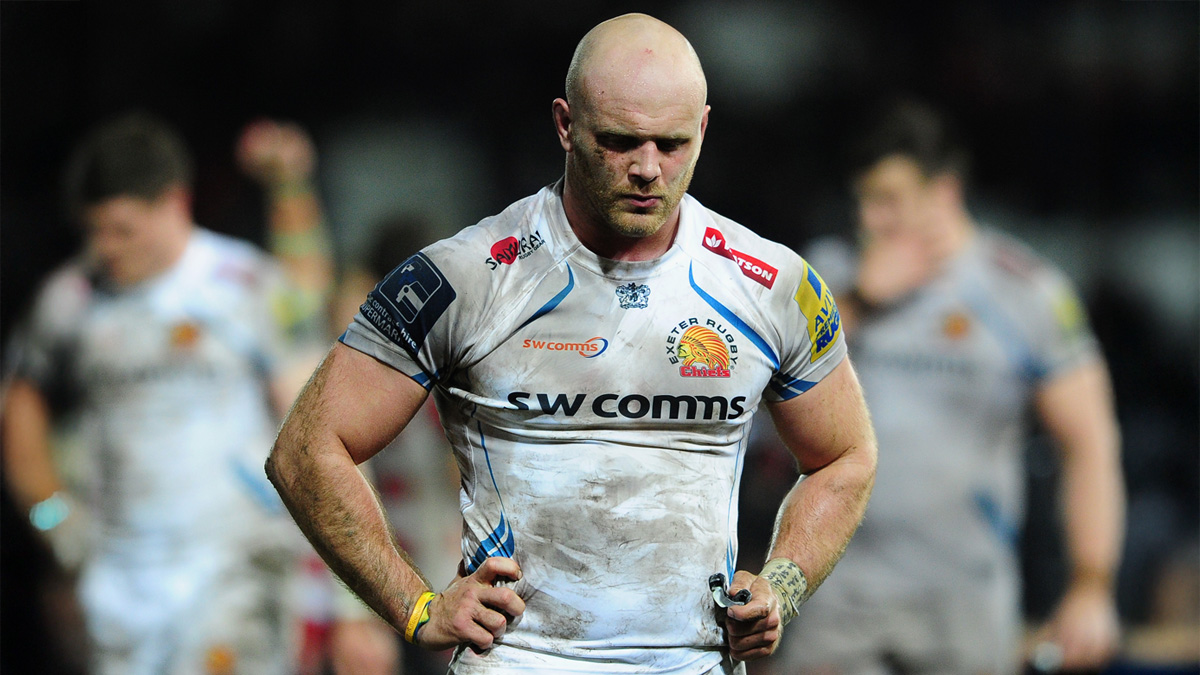
Buy-in
Having these open conversations about the vision also gives you the opportunity to motivate or move along people who have not bought in. Getting your team to shape their role in helping to achieve a specific vision or goal can get them more invested.
“They have to accept the fact that they're not the leaders, so they're not going to be making the final decisions,” says Norris. “But if they can have some element of input into the vision and then some level of interpretation – what that means for them specifically – then that creates that sense of ownership. That ownership has a kind of inbuilt pressure in there, because they think, ‘I made this vision just like everybody else, and so it's part of me to make it happen’.”
Goals you’ve set for your teams can be a motivator, but also help you understand who wants to be on the journey with you. Some people may have their own ambitions of starting a family or building out their side hustle and this understanding of who’s bought in is better for the individual and the business.
“When you achieve goals, you've got to be aware, as a coach or a leader in business, that there are going to be some people who think that was their goal and they’ve achieved all they have wanted to,” says Armand. “You have to have the courage and the relationship built enough to say, ‘Thanks for what you’ve achieved, here’s X recognition, but I need to get someone in that is fresh and wants to achieve the next goal’. Think of it like a circular process: achieve your goal, buy in, understand your people, communicate (and then start from the beginning).”
Leadership sets the tone
After losing the 2016 Premiership final, Exeter Chiefs started the next season poorly, losing seven of their opening ten games. Baxter realised his messaging was off.
“I remember thinking that I was not really saying the right things,” he recalls. “I said to the team, ‘Look guys, if last season you lost a final, there’s only one progression we can talk about making here, isn’t there? We need to start talking about winning a frontline final’.” Norris says this realisation is key to being a good leader and getting the most out of a team after disappointment.
“Rob Baxter acknowledged that he wasn’t presenting the truth in the right way that was going to be motivating to his team,” says Norris. “If you have a leader who is transparent about what they’ve done right, but also what they’ve done wrong, you can see the power. People buy into the fact that the leader learns from their experiences.”
What Baxter didn’t realise was that senior players were also starting to realise things needed to change. The bad start to the season came to a head in a European Champions Cup game at Sandy Park against the French team Clermont Auvergne.
They won the game by 35-8, a humiliating loss for the Chiefs. The senior players had had enough. “We were still in our kit, some boys still had blood all over them,” recalls Chiefs fly-half Gareth Steenson, “and we said, ‘right, this isn’t on’. We all went straight into the coach’s office and sat down and asked how we were fixing this.”
Club captain Jack Yeandle agreed they couldn’t accept those terms, but it wasn’t just up to the coaches. “We told the coaching staff they need to call us out too. We’re not going to be offended,” he says. “That’s a big thing we had in the meeting: that you shouldn’t take offence if someone else is calling you a dick for not training well enough.”
In the end, that humiliating European loss led to a reset and refocus. The Chiefs went on a 15-game unbeaten run – winning 13 and drawing two in their final 15 games and winning their first Premiership title. It laid the foundation for what was to come: the double-winning 2019-20 season.
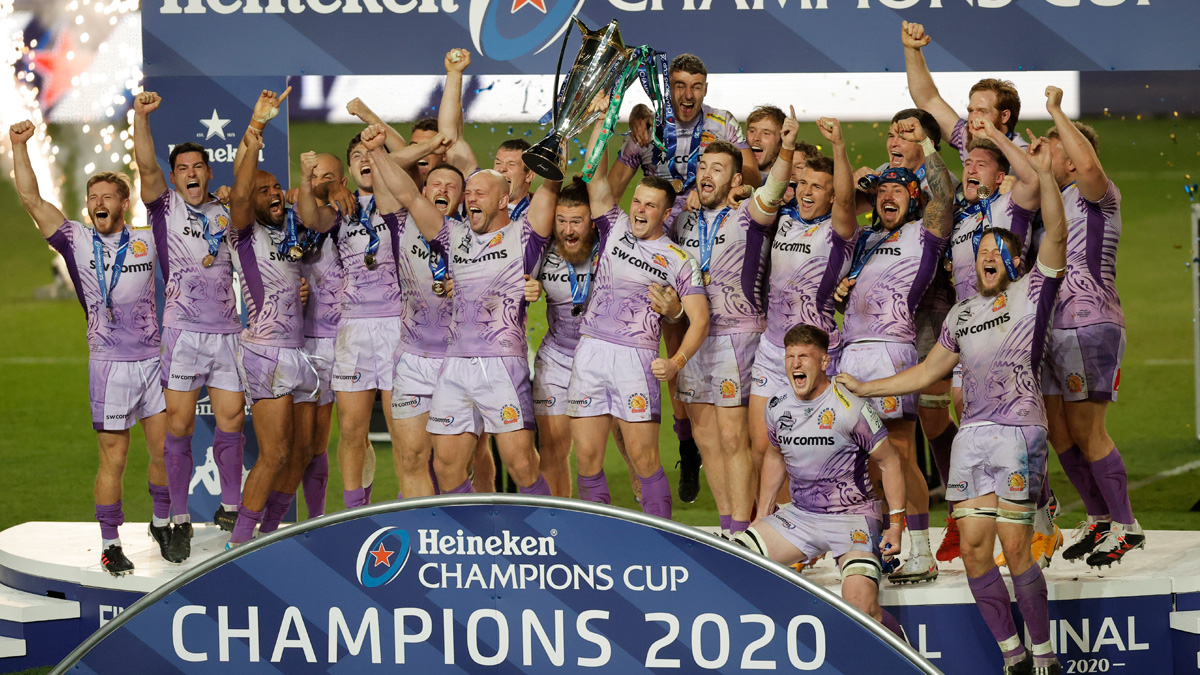
The story of the Exeter Chiefs is a testament to the power of vision, culture and resilience in achieving success. From the lower leagues to lifting Premiership and European trophies, their journey shows sustained progress is built on the right people, a shared purpose and the discipline to focus on what can be controlled.
By fostering a culture of accountability, communicating a clear vision and maintaining momentum, the Chiefs proved that transformation is possible in both sport and business. Their rise isn’t just a rugby triumph: it’s a blueprint for any organisation seeking to turn ambition into reality.
Listen to the full story of the Exeter Chiefs’ turnaround on Spotify, Apple Podcasts or wherever you get your podcasts.
Related and recommended
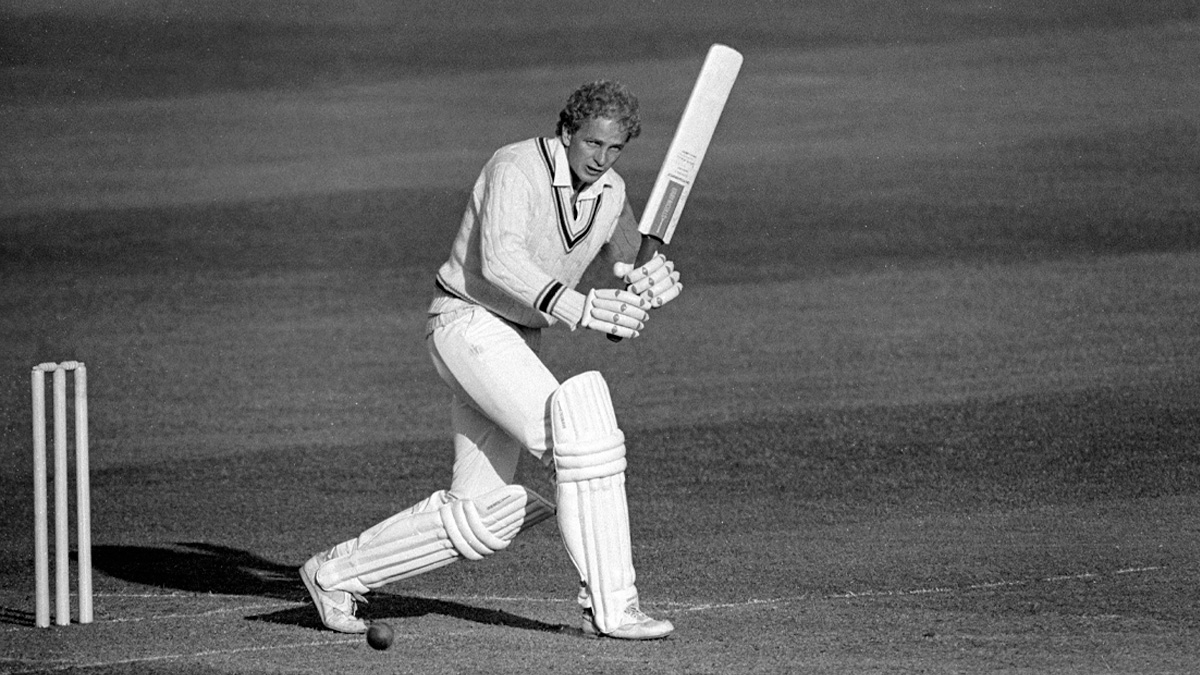
Spells of rare sporting brilliance show that finding intense concentration relies on achieving balance in your life

Rohan Blacker looks back at his time with e-commerce pioneer Sofa.com and explains the thinking behind his latest online furniture project

Rory Sutherland is one of the UK’s best-known marketing thinkers. He sets out why businesses should rethink how they value marketing, from direct mail to call centres and customer kindness

Leaders must realise the tech revolution can achieve its full potential only when human values remain central to change

